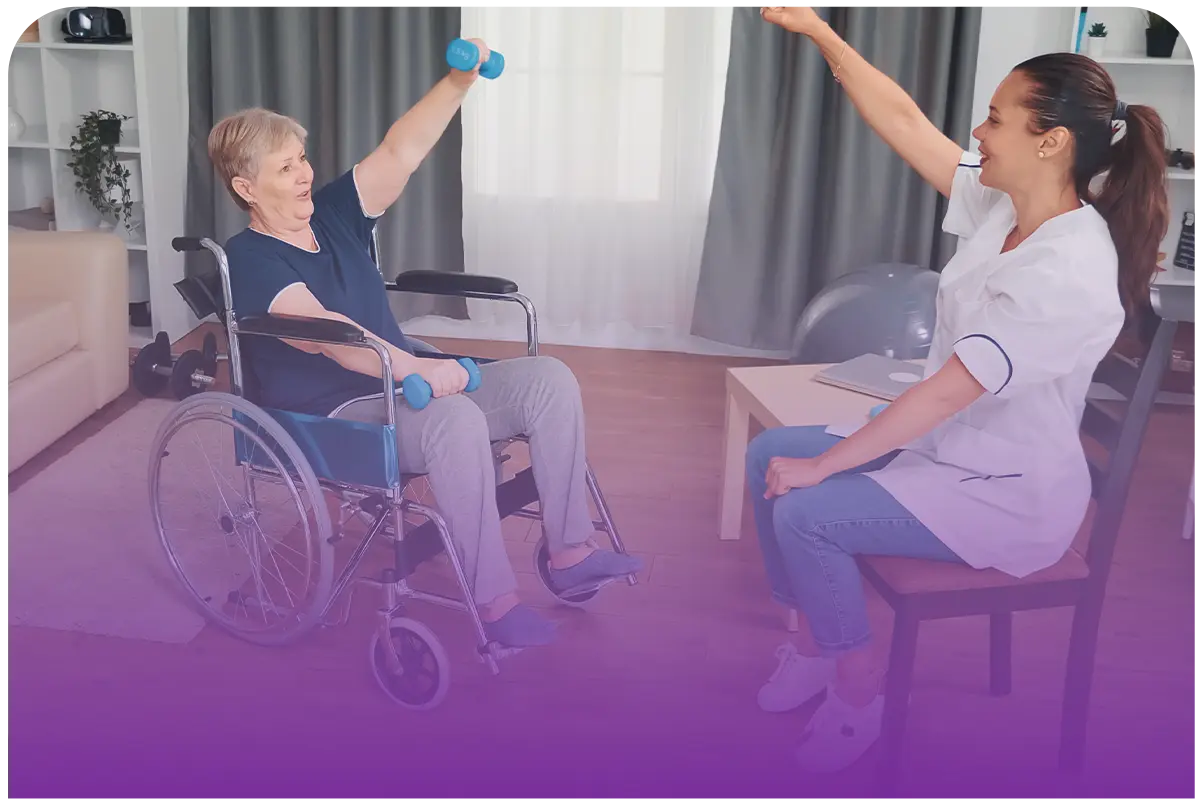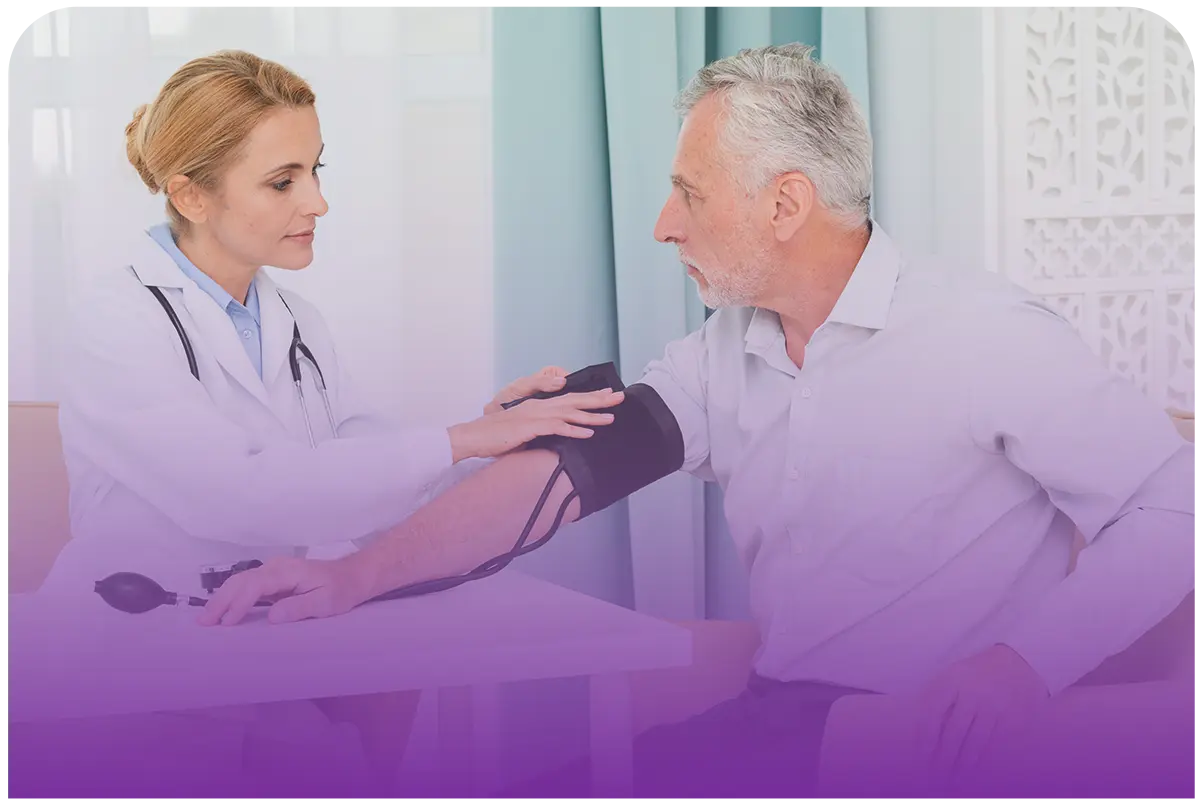Are you looking for a well paid care job with Alpha Care? Click here

Clinical Depression and health condition Care by Alphacare24
Depression is a mental health condition affecting millions worldwide and severely threatens the quality of life. While symptoms vary between individuals, those more severely affected may have symptoms more often. In this article, we will cover different aspects of depression as well as how Alphacare24 can provide help for managing it effectively.
Depression is a health condition that impacts a person’s mood, thoughts and behaviour, also known as depressive disorder or major depressive disorder. The symptoms include feeling sad and low mood; decreased interest in activities; and physical symptoms like changes in appetite, sleep, and energy levels or appetite changes. Depression may last from weeks or months until becoming chronic in certain instances.

Living With Depression
Living with depression can be challenging, but there are steps that people with the disorder can take to help manage it. Engaging in physical activity, eating healthily and getting enough restful sleep is among the many strategies which may prove helpful. Furthermore, it is also crucial that those suffering from depression have support networks of friends, family or mental health professionals around them for added strength during difficult times.
What are the factors that cause depression?
While depression’s precise cause remains unknown, experts believe genetic, environmental, and psychological factors cause it. Some common triggers for depression include a family history of depression; trauma from events in your life; stressors such as chronic illness; health issues; or medications or substances used illicitly as treatment options.
Signs and Symptoms of depression
Though depression can strike at any time in one’s life, most individuals will have multiple episodes. During these periods, symptoms will manifest themselves nearly every day and include the following:
- Feelings of sadness
- Tears
- Emptiness or hopelessness
- Anger
- Outbursts
- Irritation and frustration over minor issues
- Loss of interest in most or all activities such as hobbies or sports
Risk Factors of clinical Depression
Factors that increase the risk of depression include:
1. Genes and Family History: If there is a family history of depression or other mental health disorders, an individual is more prone to experiencing its effects and developing depression.
2. Chronic Stress: Long-term or ongoing stress is often the precursor to depression. Factors like work-related pressures, relationship difficulties and financial strain all play a part.
3. Experience of Trauma: Exposure to physical or emotional abuse, neglect or significant losses increases the risk of depression.
4. Gender: Research suggests that women are more prone to experiencing depression than men due to hormonal shifts, social pressures, and biological differences that contribute to this difference.
5. Poor Nutrition: Lack of essential nutrients in our diets can negatively impact brain function and increase the risk for depression, making proper nutrition critical to maintaining optimal mental health.
6. Unresolved Grief or Loss: Grieving the loss of someone dear or adapting to significant life changes without adequate support and coping mechanisms can contribute to depression.
7. Personality traits: Low self-esteem, pessimism or an affinity to overthink or worry too frequently may increase an individual’s risk for depression.
8. Medication and Substance Abuse: Addiction to specific prescription, alcohol, and illicit substances can increase the risk of depression or worsen existing symptoms, increasing its severity or prolonging its effects. These include certain antidepressant medicines and illegal substances such as heroin.
Although these factors may increase the risk of depression, each individual’s experience differs; not everyone who meets these criteria will go on to develop it. Depression is a complex condition influenced by biological, psychological and environmental factors.
Different Types of Depression
Depression comes in different varieties, each presenting its symptoms and characteristics. Here are some of the more popular types of depression:
1. Major Depressive Disorder:
This type of depression is the most widespread. Its hallmark symptoms are persistent sadness, low mood and loss of interest in activities. Additional symptoms may include
- changes in appetite and sleep patterns
- fatigue
- difficulty focusing
- thoughts of self-harm and difficulty with concentration.
2. Persistent depression (commonly referred to as dysthymia)
It is a long-term form of depression lasting two years or longer, often with less severe symptoms than major depressive disorder but still can significantly impact daily life.
3.Seasonal Affective Disorder (SAD):
SAD is a form of depression characterised by depressive symptoms that arise in winter when sunlight levels decrease. Common symptoms can include sadness, low mood and lack of energy.
4. Bipolar Disorder
It is defined as a mood disorder with episodes of depression and mania. A person experiencing depressive episodes may display similar symptoms to major depressive disorder; during manic episodes, they may feel extremely happy or elated and engage in risky behaviour that requires immediate action.
5. Postpartum Depression:
Postpartum Depression occurs post-childbirth and is more prevalent among women than men. Symptoms may include sadness, anxiety and irritability.
6. Psychotic Depression:
This severe form of depression features psychotic features like delusions or hallucinations.
Depression is a complex health condition, and people may experience multiple types of depression at once. A healthcare professional can assist in diagnosing which kind of depression someone is experiencing and provide appropriate treatment solutions.
Diagnosis
Your doctor can diagnose depression through various means. These could include:
1. Physical Exam: Your physician may perform a physical examination and inquire into your overall health status. Depression can often be linked to physical conditions.
2. Laboratory Tests: Your doctor may order specific laboratory tests, such as a complete blood count or thyroid function exam, to rule out any potential medical causes for your symptoms.
3. Psychological Evaluation: When conducting a psychological evaluation, a mental health professional will discuss your symptoms, thoughts, feelings and behaviour patterns. They may ask you to complete a questionnaire or provide additional details to assist them in their assessment process.
4. DSM-5 Criteria: Mental health professionals often consult the Diagnostic and Statistical Manual of Mental Disorders (DSM-5), published by the American Psychiatric Association, when diagnosing depression. This manual offers a standardized framework for classifying mental health disorders.
Utilizing these methods, a doctor or mental health professional can accurately diagnose depression by assessing your physical and psychological well-being.
Treatment for Depression
Various treatment options are available to those suffering from depression; selecting one depends on an individual’s symptoms and needs. Here are some popular treatments:
- Talk Therapy (sometimes known as Psychotherapy):
Talk therapy involves meeting with a mental health professional and discussing your thoughts, emotions, and behaviours to gain perspective and insight into negative thought patterns and develop practical coping skills to manage symptoms of depression. This form of treatment can provide significant benefits in managing symptoms and creating new thought patterns that lead to them.
- Antidepressant Medication:
Antidepressants are medications designed to relieve symptoms of depression.
There are various antidepressant drugs available; their effectiveness depends on an individual’s symptoms and medical history; antidepressant treatments typically require being prescribed by a doctor or psychiatrist.
- Electroconvulsive Therapy (ECT):
Electroconvulsive therapy is an electric current-based approach to induce seizures in those suffering from severe depression. Generally, this therapy should only be considered when all other methods have failed and individuals remain suffering.
- Transcranial Magnetic Stimulation (TMS):
TMS is a noninvasive therapy that utilises magnetic fields to stimulate nerve cells in the brain, making it a potentially effective remedy for depression that has not responded well to other treatments. It may also be effective against insomnia.
- Lifestyle changes:
Lifestyle modifications may also help manage depression effectively, such as regular exercise, healthy eating habits, adequate restful sleep hours and refraining from alcohol and drug use.
Conclusion
Awareness about depression is vital to combat stigma and increase understanding. By broadening our knowledge and growing experience, we can foster a more compassionate and supportive society for those with this illness.
Depression is an experience, and recovery takes time and patience. Individuals can navigate toward improved mental health and enhance overall well-being by providing understanding, support, and effective treatments.
Let us continue to champion mental health, dismantle barriers, and build a society that values and supports those living with depression. Together, we can create an optimistic world where everyone can find hope, healing and a brighter future.
FAQs
Q: For how long will treatment for depression last?
Treatment duration can depend on various factors, including an individual’s specific circumstances, the severity of depression and chosen approach, and how well they respond to therapy. On average, treatment can last several weeks, months or even years.
Q: Will antidepressant medication need to be taken for depression?
The prescription of antidepressant medication to treat depression depends on an individual’s unique situation and symptoms, including severity. Antidepressants are usually effective against moderate to severe depression and certain forms that have not responded positively to other interventions.
However, it’s essential to keep in mind that not all individuals diagnosed with depression require antidepressant medication as treatment plans will differ depending on an individual’s individual needs – other forms of intervention, including psychotherapy sessions, lifestyle modifications, and support networks, may be effective alternatives to taking antidepressants.
Q: How can I alleviate symptoms of depression?
For relieving symptoms of depression, various general strategies can be beneficial. Seeking professional assistance from mental health professionals is paramount as they can offer guidance, support and appropriate treatment options. Engaging in regular physical activity, practising stress-reduction techniques, setting a routine, connecting with others for social support, prioritizing adequate sleep and maintaining a healthy diet are also practical steps toward managing depression, but be aware that some individuals may require more intensive approval as well as medication plans from professionals and medications to find lasting relief from depression.













 326 Winchester Rd Southampton SO16 6TW Hampshire UK
326 Winchester Rd Southampton SO16 6TW Hampshire UK




